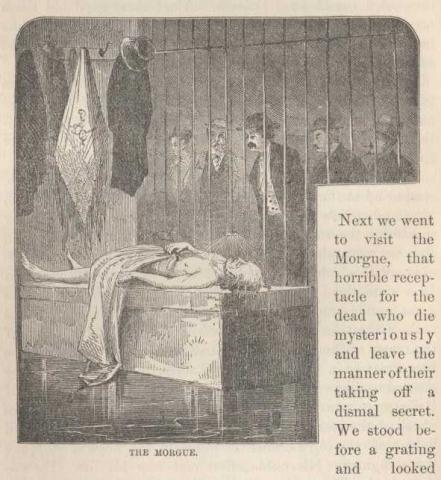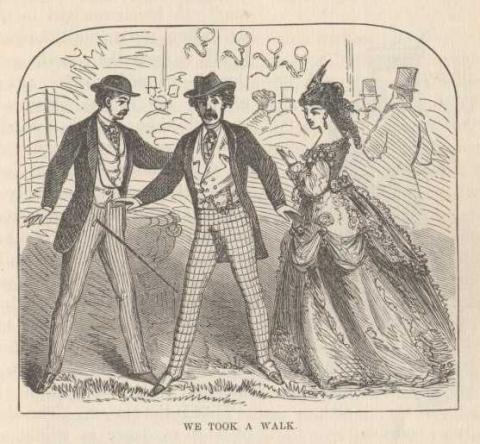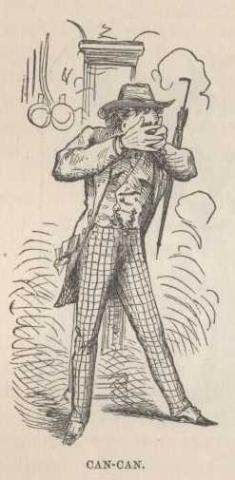Sight seeing in Paris, Mark imagines the scenes viewed by those saints found on the wall of Notre Dame. He visits the morgue and ponders the life and death of a drowned man stretched upon a slab. He is both shocked and drawn to the "outrageous" can-can. Some of the material for this chapter can be found in original form in letter Number Five published in the Daily Alta California, discussed in chapter 6 of McKeithan (1958). Portions of the letter can also be found in Chapters 12, 13 and 16 of the book. The video slideshow for this chapter was produced using PhotoFilmStrip. I tried to find a number of illustrations for the chapter including those found in the first edition printing of this book, as provided by the Gutenberg Project copy and also found in The Oxford Mark Twain edition of The Innocents Abroad. Other illustrations can be found in the Wikipedia Commons.
- Log in to post comments



Twain Chapter Comments
The Old Masters
scott Wed, 12/05/2018 - 11:20
This chapter has one of several expressions of disdain for "the old masters", more prominently a part of in the Italian chapters. The paintings, in Twain's opinion, express "nauseous adulation of princely patrons". "If there is a plausible excuse for the worship of men, then by all means let us forgive Rubens and his brethren." He seems to have a much greater appreciation for Renaissance painters.
Mutilated Saints Perched on the Notre Dame wall
scott Wed, 12/05/2018 - 11:21
As much as Twain seems to have a high opinion of Napoleon III and his works, he shows an early disdain for empires. A disdain that will find much greater expression in his writings of a later day. This chapter opens with a sort of fly on the wall account of what those saints have seen "...and they may possibly continue to stand there until they see the Napoleon dynasty swept away and the banners of a great republic floating above its ruins".
An unusual display of empathy
scott Wed, 12/05/2018 - 11:22
While visiting the morgue, Twain ponders the earliest life of the drowned man found upon the slab and wonders about the man's mother and family. Twain notes the discomfort that would be caused if such a friend or family member should arrive to identify the man while he's standing there as a tourist. He also remarks on the rather ghoulish nature of those who visit the morgue on a regular basis. "Now this don't afford you any satisfaction---a party with his head shot off is what you need." I find this to be a rather unusual display of empathy on the part of a journalist. This expression of empathy does not, in fact, appear in the letter to the Daily Alta California but must have been composed by Twain at a later date while writing the book. It apparently required a deal more introspection than is allowed a journalist but not too much for a writer.
Mark Twain and Blondin
scott Wed, 12/05/2018 - 11:24
Twain spends a paragraph in this chapter describing the tightrope walker Blondin's act in the garden before the dancing began. He describes the act as "too perilous to afford a pleasant spectacle". There are a number of references to Twain describing Blondin as "an adventurous ass" but he makes no such comment here. I have not found an actual citation for this remark and Twain must have known of Blondin before 1867 as Blondin had crossed Niagara Falls in 1859. The remark seems to be associated with Twain owning a share in the Buffalo Express in 1869. I think Twain much preferred watching the Can-Can that evening.